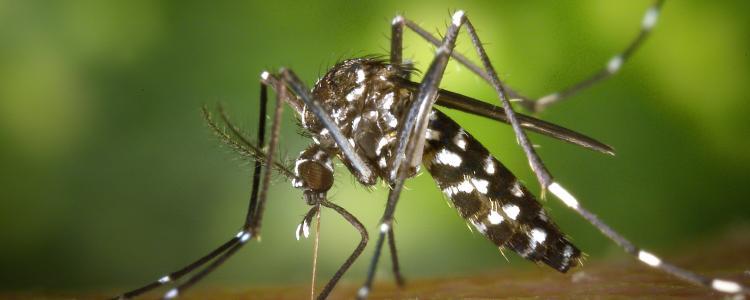At Nomad, we offer the Qdenga vaccine against Dengue fever to travellers at risk. Find out more about dengue fever and the QDENGA vaccine here:
What is Dengue Fever?
Dengue fever is a mosquito-borne disease that is spreading rapidly around the world. It is present in more than 125 countries and is estimated to cause 390 million infections each year!
Dengue is endemic in Africa, the Americas, the Eastern Mediterranean, South-East Asia and the Western Pacific. Dengue is now emerging outside of the tropics. Cases have now been reported in France and Spain as well as other countries across Europe.
Dengue carrying mosquitoes like to breed in stagnant water such as drain pipes, old tyres, cans and flower pots that collect rain and are prevalent in urban areas. They can bite indoors and outdoors and tend to be more active in the morning.
There are four different dengue virus serotypes. Infection is caused by any of the four dengue virus serotypes. Recovery from infection by one dengue serotype provides lifelong immunity against that serotype only. Secondary infection to any of the remaining serotypes is associated with an increased risk of severe disease.
Symptoms of Dengue fever
For some people infected with dengue there are no symptoms, or they may just experience a self-resolving flu like illness. Others may experience what is often known as break – bone fever due to the high fever and the extreme pain it causes in muscles and joints. It can also cause a severe headache, pain behind the eyes, nausea and vomiting, swollen glands and a skin rash on the chest and trunk.
Although rare, severe dengue (dengue haemorrhagic fever) is a risk for travellers. Secondary infection of dengue, pregnancy, obesity, underlying medical conditions including hypertension, diabetes, asthma , and revisiting endemic areas are all factors that can increase risk of severe dengue.
Symptoms of severe dengue include severe abdominal pain, persistent vomiting, rapid breathing, bleeding gums or nose, fatigue and restlessness. Immediate hospital care and treatment is required. In rare cases it can cause death.
Am I at risk?
If you are visiting a country where dengue is present you are at risk. Of course there are some factors that could increase your level of risk such as length of stay, season of travel and exposure, however mosquitoes transmitting dengue like to bite during the daytime when we are also more active. Contracting dengue infection could really disrupt or even ruin your trip.
Treatment for Dengue Fever
Unfortunately there is no specific treatment for Dengue infection. It is recommended that fever and other symptoms are managed with fluids, rehydration solutions and paracetamol. Advice from a healthcare provider should be sought.
How do I prevent mosquito bites and reduce the risk of Dengue infection?
The best things you can do are:
- Cover up your skin by wearing long loose, lightly coloured clothing. (It makes it more difficult for mosquitoes to bite your skin).
- Treat your clothing with permethrin
- Use an insect repellent such as 50% DEET on your skin.
- Sleep under an impregnated mosquito net, use a plug in or knockdown room spray.
- Have the Qdenga vaccine.
About Qdenga vaccine.
What is Qdenga vaccine?
Qdenga vaccine is licenced in the UK and is designed to protect against all four dengue virus serotypes. The vaccine cannot cause Dengue disease. The Qdenga vaccine is available at Nomad clinics.
How does Qdenga work?
Qdenga vaccine stimulates the immune system to help protect against the dengue viruses, preventing dengue infection and hospitalisation.
Can I have the Dengue vaccine?
The vaccine can be given to individuals of 4 years of age or older who have had a previously confirmed dengue fever infection. A consultation with a travel health specialist is required to ensure it is the right vaccine for you.
How many vaccines do I need?
Two doses of the dengue fever vaccine are given 3 month apart from each other.
We know that not every traveller has 3 months prior to travel to complete their vaccinations but the good news is that one dose of Qdenga vaccine will provide approximately 81% protection against all serotypes of Dengue infection until the second dose is given.
For last minute travellers it is never too late to have the vaccine.
The second dose of Qdenga provides 95% protection from 30 days to 12 months post vaccination.
Will I need a booster ?
Long term protection has been shown for up to 4.5 years following the 2nd dose of Qdenga however the need for a booster dose has not yet been established.
Arrange an appointment at one of our clinics and get the recommended advice & vaccines from our travel health experts as some protection is always better than none.


No Comments
Be the first to start a conversation